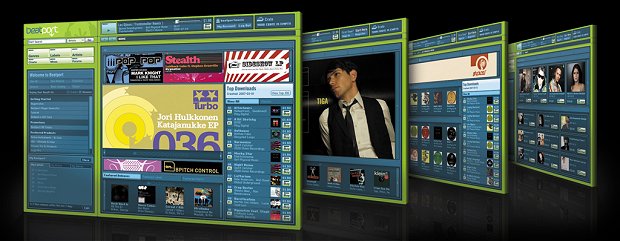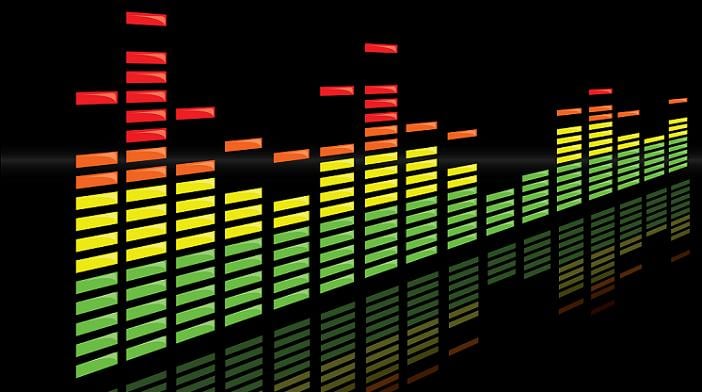 Image via remixtures.com
Image via remixtures.com
A version of this article originally appeared on Symphonic Distribution.
Distribution goes beyond simply fulfilling and delivering on behalf of record labels and artists. Many companies (like Symphonic Distribution) have branched out into other services, such as publishing administration and neighboring rights. Likewise, product, label, and artist marketing and promotion go hand in hand with distribution. A featured release in online outlets is only a small piece of the pie that is music distribution, and it's important to keep in mind that the marketing side, including artist branding and development, are going to be essential parts of the industry landscape over the next decade. Even so, here are five truths for artists considering going for that featured placement.
1. It doesn’t guarantee you any longstanding success or sales
Many record labels and artists have great success one day and disappear the next – even those who have been featured on the main page of an online store and have charted in the overall top 10 bestsellers. If you chart, don’t develop an ego and expect it to happen each and every release; music evolves and the business evolves. Next year, we’ll be talking about a brand new record label or artist that just broke and is huge, and that artist might be out of music in five years. So, while a feature is important, it’s not the be-all, end-all in the industry. It’s just one step in a journey that, if you work at it, can last for as long as you want it to.
There's a misconception that getting a feature equals instant sales. That is definitely not true. Sometimes, products from labels that never get features sell better than those that do. Even paying for featured placement never guarantees a return on investment. What features do is get your product out there visually and hopefully drive interested listeners to make a purchase on iTunes, Juno, Beatport, etc. It’s up to the consumer to be compelled by the image, name, title, and, of course, the song to actually bite down. Realize first and foremost that getting featured is nice, but it doesn’t always get the results you’d expect.
2. No one has a better chance than anyone else
Some digital distributors promise labels guaranteed features and promotion on platforms like Beatport, but in reality, no one has any guarantee over any piece of real estate on Beatport or any platform that accepts music – unless they pay for it. If you're ever given these empty promises, it shows a sign of desperation for whomever is giving them to you.
For a product to get featured, various elements are considered, such as its cover and the label and/or artist's branding (including a professional-looking social network, website, press kit, and photos). Think about this: If you just have a simple logo or a cover that's not up to the standards of what’s currently featured, then yout music might be overlooked, no matter how great it sounds. Take pride and invest time in your release's appearance, because that's the first thing consumers notice. If they see a crappy cover or pictures of you hanging out with your family at a Fourth of July barbecue as your profile picture, they probably won't take your music seriously.
3. You are one in a million, so stand out
In an industry that’s so oversaturated (and getting worse every single day), you need to do something to stand out. The music, the cover – everything matters. If you're looking at Swedish House Mafia as a model, for example, that’s great; but if you're copying them and calling yourself the American House Mafia, and you have four producers on one song, it’s just a blatant rip-off of something that's already been done – and people will notice. If it’s old news, it’s not relevant placement material.
Just because your music fits into a genre that’s featured a lot or sounds even similar to one, or if you think your artist is huge, don’t think you're guaranteed a feature. It can take a long time to get anything featured by anyone, and it’s about the total package. There isn’t one blueprint that works for every single artist, as each artist has a different marketing anatomy.
4. Consider different processes and lead times
Just like every retailer or streaming service intakes music and reports sales differently, they also receive feature requests differently. This also means they’re also getting requests at different times; thus, you may have to deliver a product one month ahead of schedule just to even be considered. On the other hand, a smaller lead time of a week is a terrible strategy, as it gives everyone involved literally zero time to consider the product and, usually, those requests are automatically deleted from a request database. It also undermines others who are actually abiding by guidelines and resources to get their products featured. Plan ahead, prepare your release, and have a discussion with your delivering partner about strategies before the release date is scheduled.
5. Don’t put all your eggs in one basket
Work alongside multiple partners to get promotions and features, and be realistic that you have to work to get there. Spinnin’, a label that is consistently featured on Beatport, for example, is a major company that started where you may be at this very moment. It got to where it is now by working hard and building up a brand, releasing what it considers to be quality music, and much more. The label is treated like a business; you won’t make it in the industry if you're just sitting there expecting things to happen.
To close, it’s not up to the artist, label, distributor, or even label reps to score a featured placement; it's up to the marketing teams at various platforms to really consider featuring your product. While a placement doesn’t guarantee household-name status, it's a great launching pad to reach potential fans. The important thing after a feature is to be consistent, continue to evolve, and deliver quality material. After all, not many folks remember those who finished second.
Jorge Brea is the CEO and founder of Symphonic Distribution.







